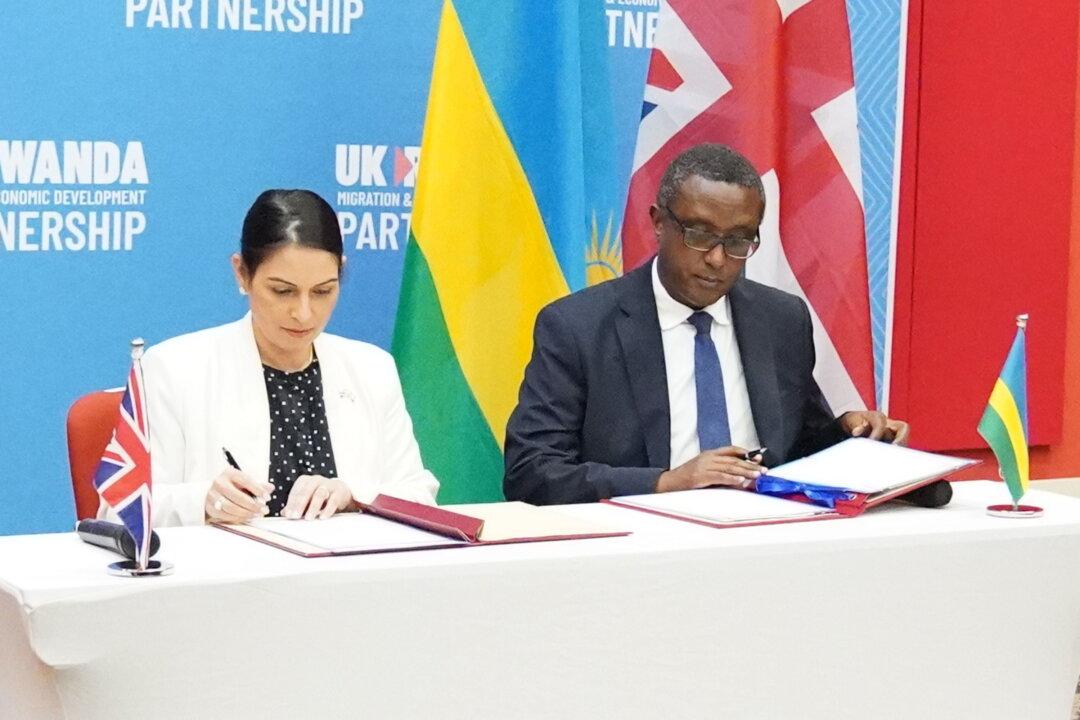A Boeing 767 that was set to take seven asylum seekers from Britain to Rwanda was grounded at the last moment on Tuesday night after a ruling by the European Court of Human Rights (ECHR). But what is the ECHR and why is Britain still bound by it?
In April British Home Secretary Priti Patel signed a deal with Rwanda’s Foreign Minister, Vincent Biruta, which allowed for asylum seekers who had entered the UK illegally—usually involving crossing the English Channel on a people trafficker’s boat—to be sent to the East African country and held there while their claims are processed.





